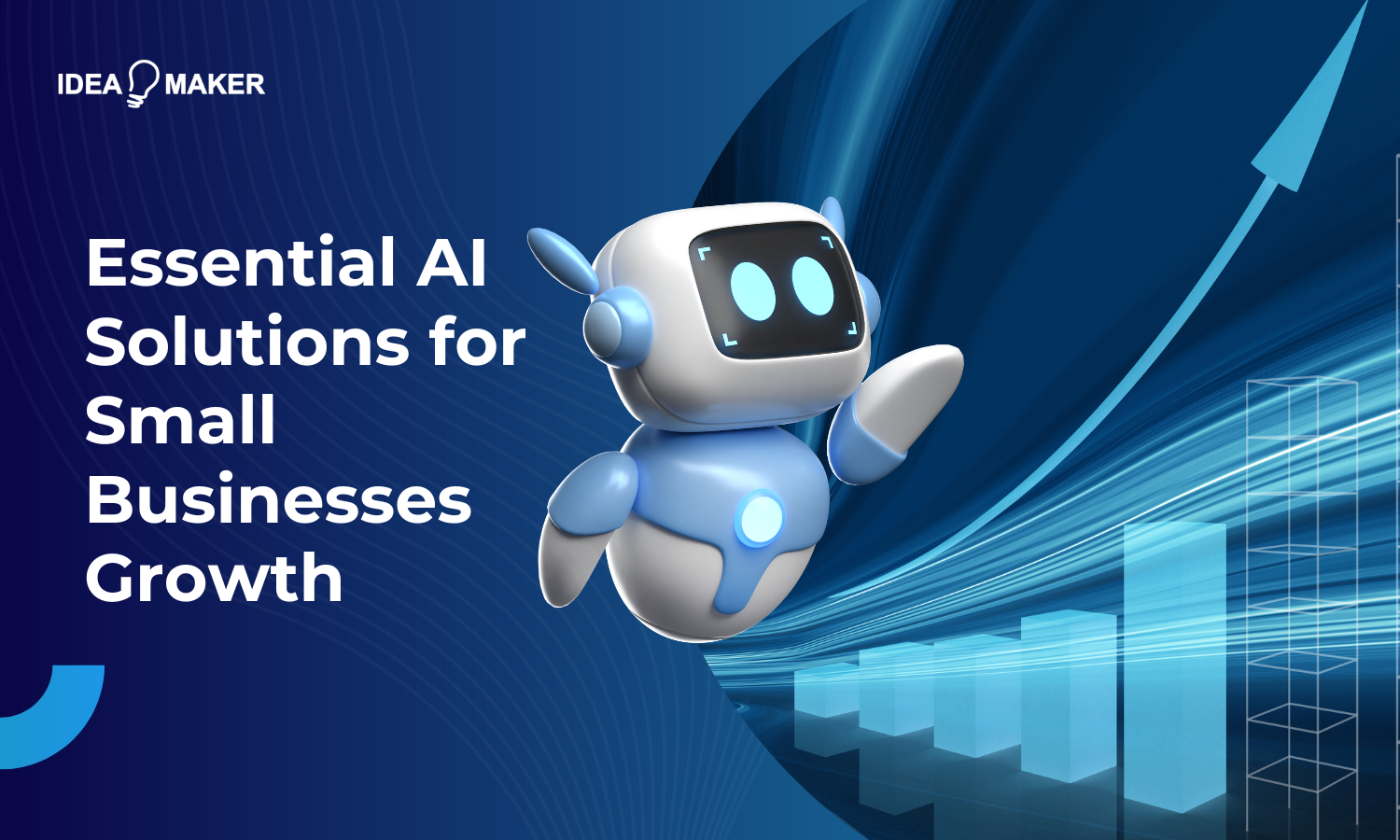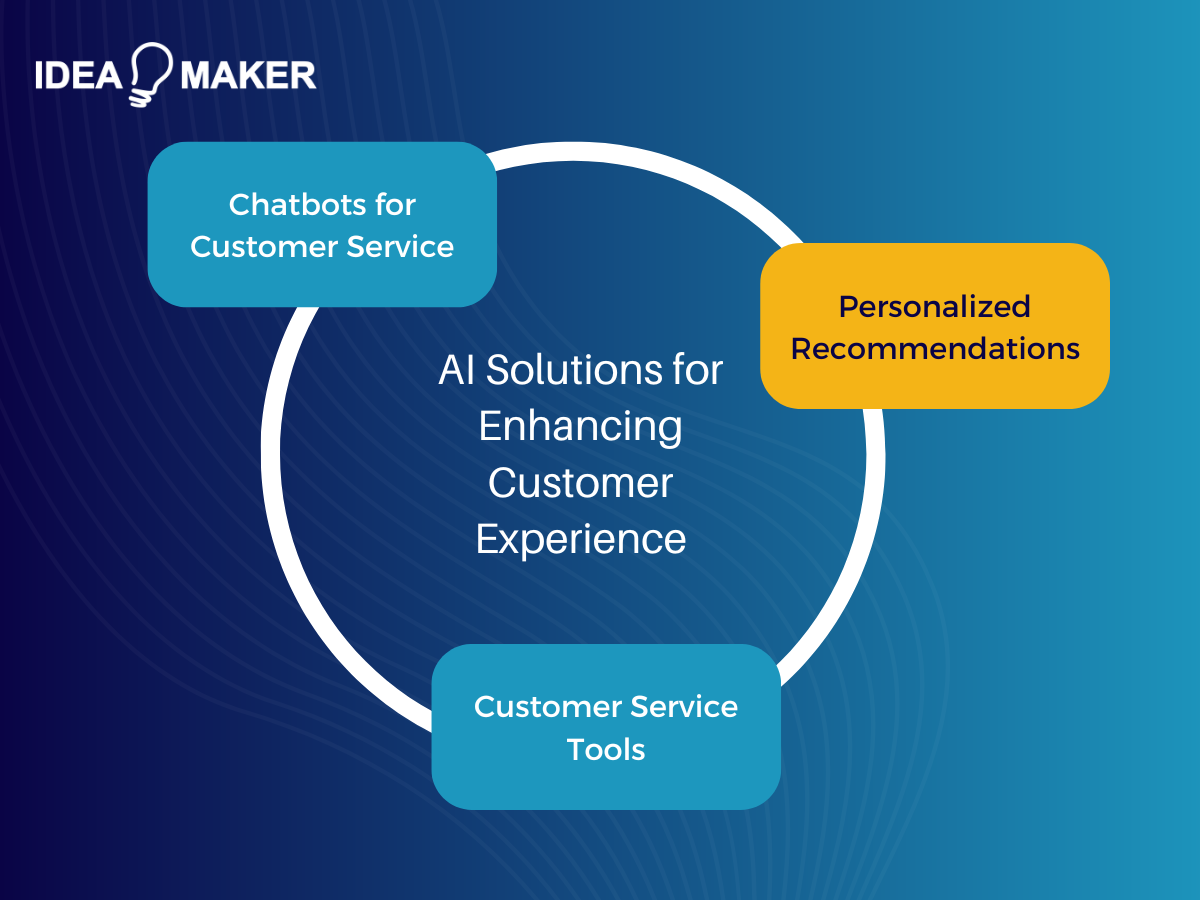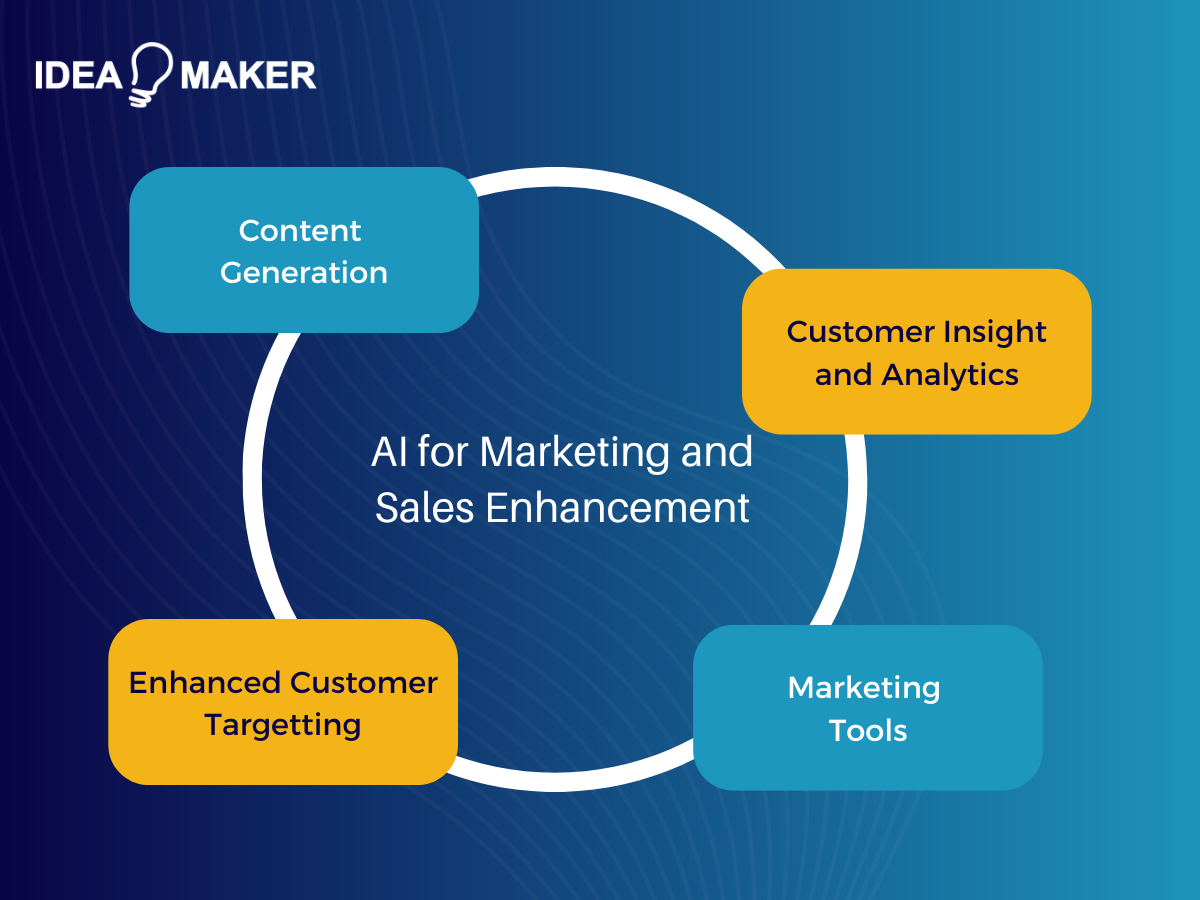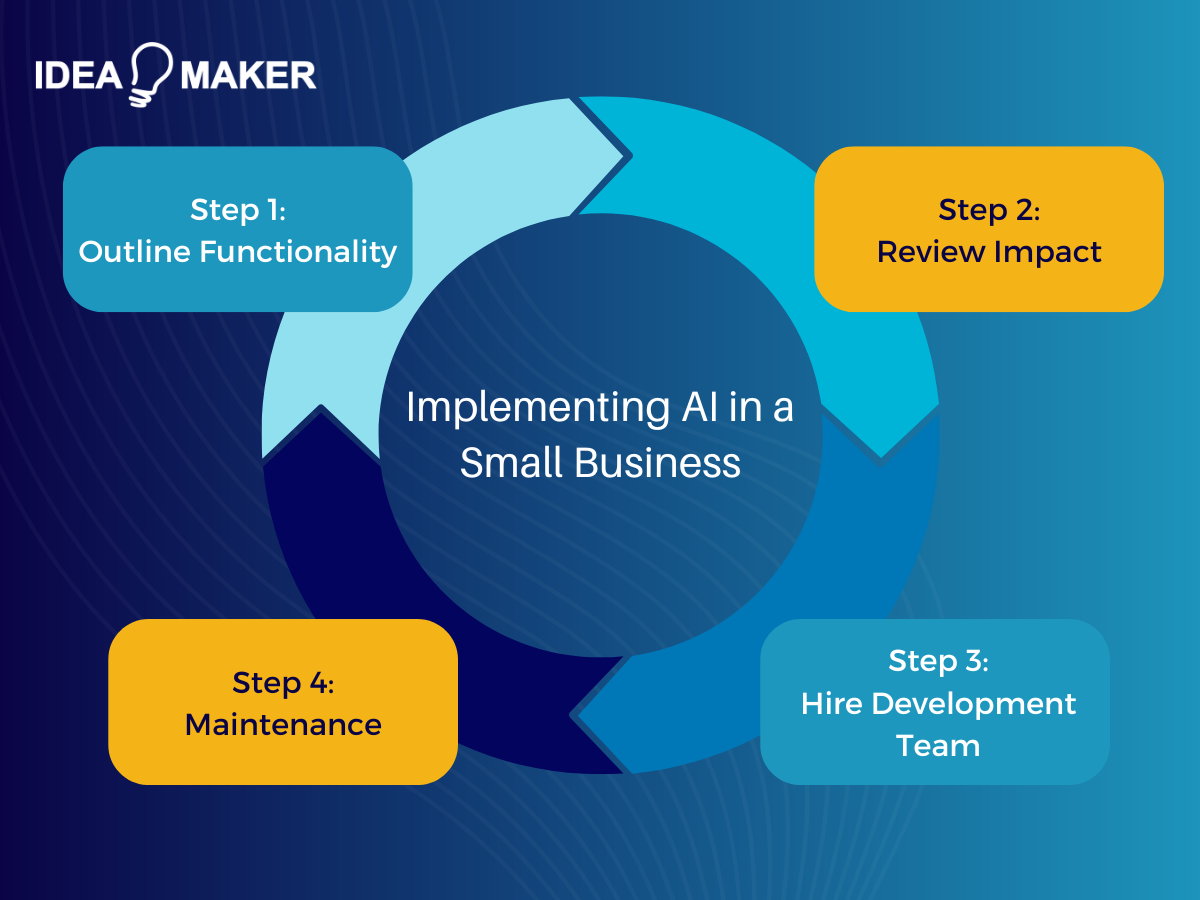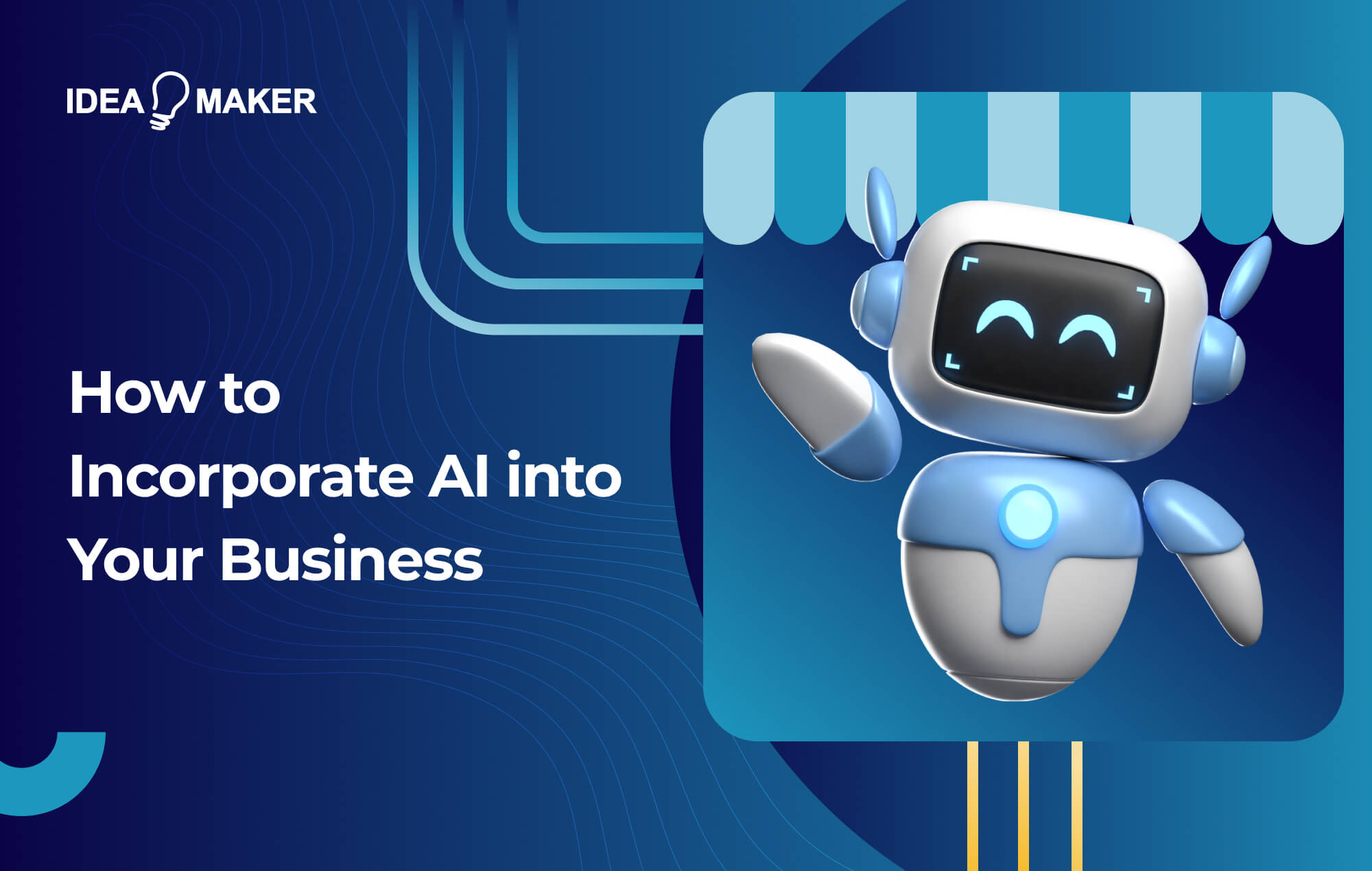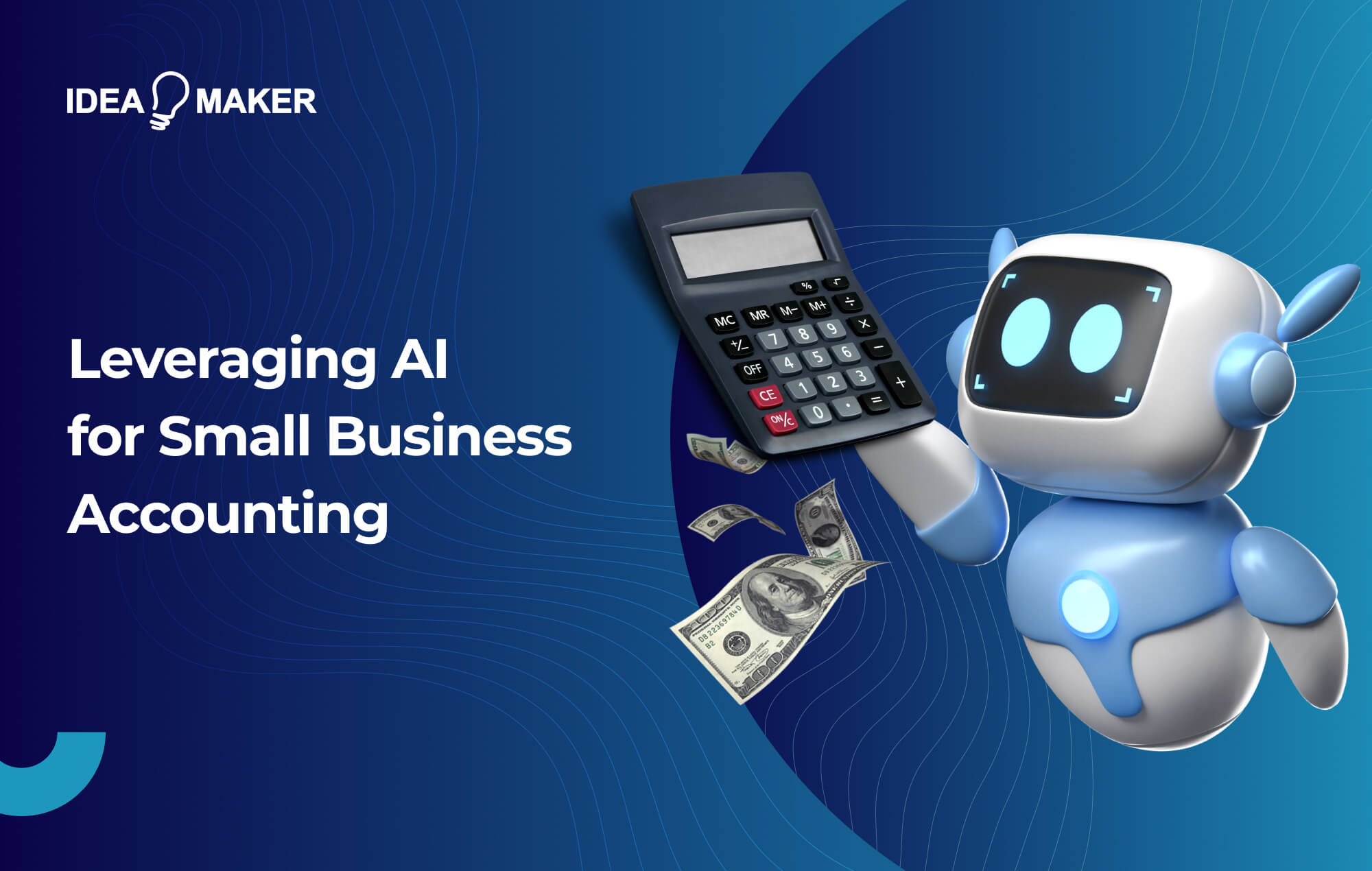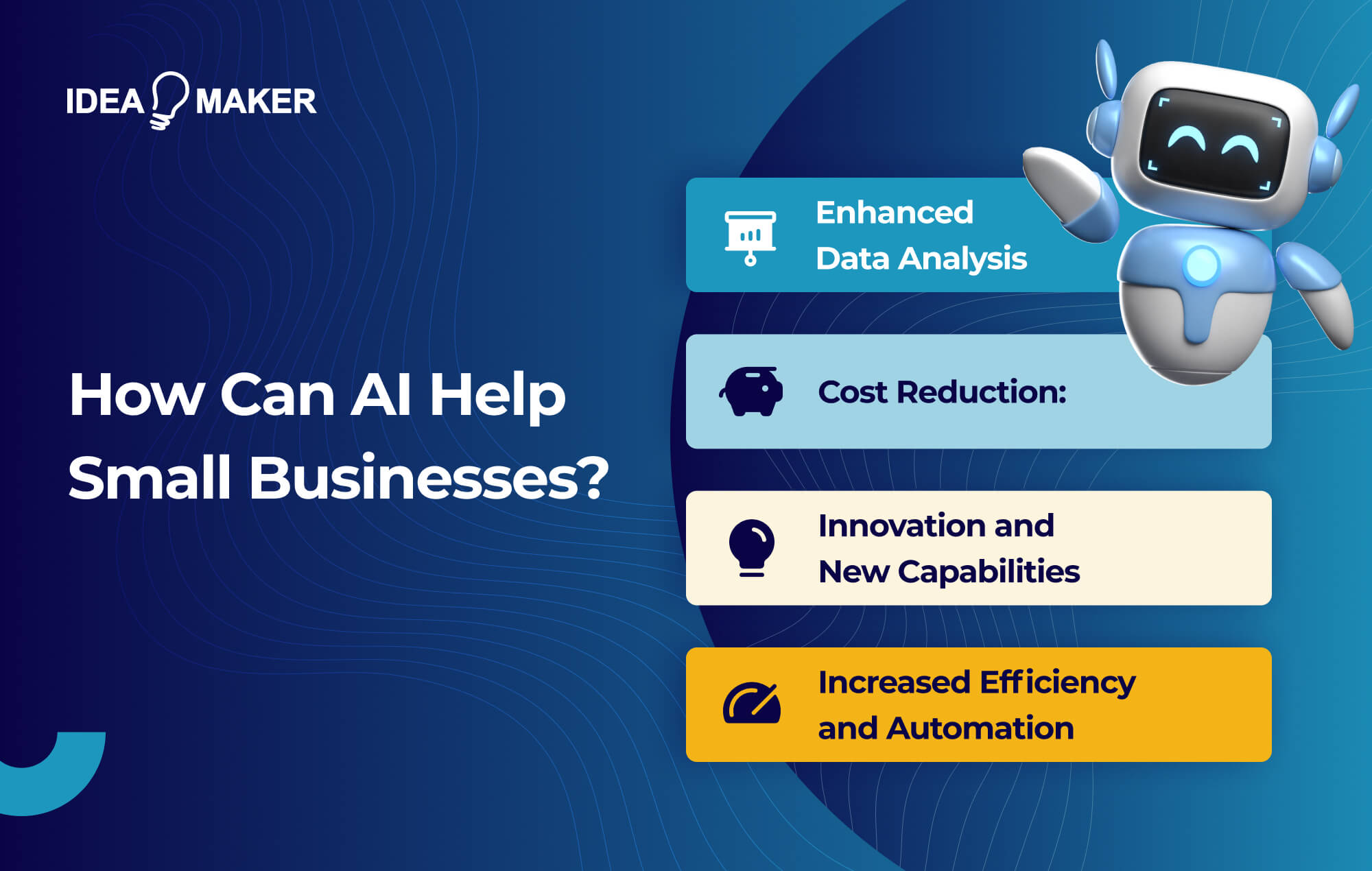Table of Contents
You probably don’t need to be reminded of the growing popularity of small businesses–that’s why you’re here. Artificial intelligence has become an important technology that can elevate businesses to success, saving money and time. However, integrating AI into your business is easier said than done, partly from a technical standpoint but also from the overwhelming amount of functionality available.
How do you know where artificial intelligence is best suited within your business? To help you out, we’ve put together a list of the top AI solutions for small business growth. After reading this article, you’ll have a strong idea where and how you can integrate AI into your company. Keep reading to learn more.
Challenges Faced by Small Businesses With AI Implementation
Artificial intelligence integration provides small businesses with a wide range of benefits and use cases. However, there are some challenges to be aware of that we will explore in more depth in this article. Understanding these difficulties will enable you to effectively implement AI into your business without encountering unexpected issues. Some challenges to consider include:
- High Initial Investment: Integrating artificial intelligence into your business often involves high initial development cost. However, the cost varies depending on how advanced you want your AI system to be. What’s more, the long-term savings you’ll enjoy as a result of your AI integration will likely outweigh the initial costs.
- Technical Expertise Required: As a powerful technology, artificial intelligence requires a high level of technical expertise to implement correctly. Failing to properly understand the integration process can lead to broken systems that put user data at risk.
- Data Privacy and Security Concerns: While AI is quickly being implemented into businesses across the globe, many companies still lack confidence in the trustworthiness of the technology. Research shows that 79% of Americans don’t trust businesses using AI. One of the biggest causes of concern is security: How is an artificial intelligence model going to handle my data? Properly implemented AI is generally secure, but you’ll need to work hard to create an image of trust.
AI integration has major benefits for small businesses but also significant challenges to overcome. With proper planning and execution, the advantages of leveraging AI can far outweigh the costs and risks.
AI Solutions for Enhancing Customer Experience
One primary area in which businesses are using artificial intelligence is to enhance customer experience. Integrating AI for customer service enables small businesses to accommodate high volumes of customer queries without hiring additional labor, streamlining their operations.
- Chatbots for Customer Service: One of the most common uses for artificial intelligence is customer service chatbots. Using generative AI such as ChatGPT, businesses can implement AI-powered customer support assistants capable of delivering human-level support 24/7. This helps reduce support ticket backlogs and provides customers with swift and effective support.
- Personalized Recommendations: By analyzing a customer’s previous purchases and personal information such as age and location, AI models can recommend products that they are more likely to purchase. For example, if 20-year-olds from California buy more scented candles than 28-year-olds from Austin, your AI model can recommend scented candles appropriately.
- Customer Service Tools: There are many AI-powered tools available to enhance customer service efforts. These tools generally focus on automating customer service processes. These tools include Intercom, Drift, and Zendesk.
AI offers powerful tools to elevate the customer experience, from 24/7 chatbots to personalized product recommendations based on customer data. By leveraging AI for customer service, small businesses can deliver superior support while streamlining operations.
AI Solutions for Operational Efficiency
Artificial intelligence models are largely based on data processing, analysis, and prediction, making them perfectly poised to increase operational efficiency using historical data. Combined with an intelligent AI model, this data allows for several use cases including process automation and supply chain optimization.
- Process Automation: Small businesses can automate time-consuming and repetitive processes by leveraging AI, freeing up labor resources for more critical and creative tasks. Back-off processes with the potential for automation include human resources, payroll, and accounting.
- Predictive Maintenance: Leveraging historical data and computer vision, you can use AI to predict maintenance needs. For example, consider a machine that breaks down around the same time each year or under similar circumstances. You could leverage your AI system to identify this trend and notify you when it’s likely to need maintenance to prevent repeat beverages.
- Supply Chain Optimization: AI models can optimize your supply chains by analyzing your existing supply chains, stock levels, and historical customer purchases. Leveraging AI enables you to automatically order the optimum stock volume reducing surplus stock levels, and, therefore saving on costs.
- Operational Tools: Operational tools enhanced with artificial intelligence technology allow for advanced automation, streamlining business operations. Several AI-powered operational tools are available including UiPath for automation, UpKeep for maintenance, and ClearMetal for supply chain management.
AI excels at data analysis and automation, allowing it to optimize operations through process automation, predictive maintenance, and supply chain management. By leveraging AI models, small businesses can streamline processes, reduce downtime, and minimize excess costs.
AI for Marketing and Sales Enhancement
With its ability to generate original written and visual content, artificial intelligence is an effective way to improve your small business’s marketing efforts. This enables you to close more sales. From content generation to AI-implemented marketing automation, there are many excellent use cases for AI in marketing.
- Content Generation: Generative AI models like ChatGPT and Claude.ai can generate human-like content in an instant. These models are best at creating written content but are becoming increasingly adept at image and video generation. Leveraging the power of generative AI means you can generate entire social media marketing campaigns without having to create any original content yourself.
- Customer Insights and Analytics: By feeding an AI model historical data about your customers’ buying behavior and interests, it can glean insights that your marketing team may have missed. No matter how competent your team is, it’s easy to become fatigued when reviewing analytical data. However, machines don’t experience fatigue, enabling them to process data accurately without missing a beat.
- Enhanced Customer Targeting: By processing and analyzing customer data with artificial intelligence, you’re in a better position to be able to target potential customers based on their interests. Presenting customers with well-targeted advertising and product recommendations will draw in more customers, generating additional revenue.
- Marketing Tools: AI-powered marketing management tools enable you to automate arduous tasks such as social media post-scheduling. Additionally, by leveraging generative AI, you could even reply to and interact with users of social media platforms, automating your entire marketing process.
AI revolutionizes marketing by enabling content generation, data-driven customer insights, and enhanced targeting – all powered by machine learning models. With AI, small businesses can create compelling campaigns, understand audiences, and optimize outreach for maximum impact.
AI Solutions for Financial Insights
Despite security and trust concerns from day-to-day consumers, artificial intelligence is a powerful technology that helps secure online financial transactions. In fact, the AI cybersecurity market is expected to reach a worth of around $134 billion by 2023.
- Financial Forecasting: Once again using historical data, AI algorithms can predict your business’s future finances. This allows you to prepare appropriately for financial slumps and plan resources around cash flow levels, meaning your business can be more effectively managed.
- Fraud Detection: Artificial intelligence models can be used to monitor incoming network traffic identifying suspicious traffic based on behavioral patterns such as server access from an obscure location. When suspicious traffic is identified, administrators can be notified and asked to confirm access while obviously malicious access requests can be immediately rejected.
- Added Security: Added layers of security can be implemented with artificial intelligence. For example, when a user logs onto their banking app, AI can be used to verify the authenticity of the user. This can be accomplished through behavior tracking and advanced two-factor authentication.
AI enhances financial management through predictive forecasting and fraud detection based on data patterns. It also fortifies security by enabling advanced authentication and monitoring to validate users and transactions.
Implementing AI in a Small Business
When you’re ready to embark on your AI journey and implement the technology into your business, there are several steps you can take to ensure a smooth integration. Let’s briefly explore a general AI integration process you can follow.
Step 1: Outline Required Functionality
As with all projects, your first step should be outlining your required functionality and intended use. For example, if you plan to build an AI application to automate your social media marketing, you’ll need to determine which features should be AI-integrated. Automatic post-creation and scheduling are perfect uses for artificial intelligence and should be clearly noted in your initial plans.
Outlining your required AI functionality will inform your later development, providing a clear direction for developers to follow. Failing to outline functionality before the project build starts is like writing a university dissertation without attending your lectures. It’s an essential part of any AI integration.
Step 2: Review Impact on Existing Systems
The next step is to review your existing systems thoroughly, identifying what impact your new AI functionality will have. For instance, integrating new features could cause stability and usability issues. Understanding what issues are likely to occur before integration, equips you to catch and remedy these problems effectively as they arise.
This is known as developing a risk mitigation strategy that prepares you for future issues. Failing to review your AI feature’s impact on existing systems may cause developmental delays, increasing costs as more resources will be needed to remedy issues.
Step 3: Hire an AI Development Team
Unless you have experience and expertise in artificial development and integration, you will need to hire an AI development team. Taking on a complex project like AI integration without the required knowledge can be catastrophic for your existing systems, leading to broken functionality that drains resources. But it’s not always easy to find the right AI developer, so here are some key points to consider:
- Project Portfolio: You should examine your prospective developer’s portfolio to identify their areas of expertise and project quality. This allows you to understand if they are well-versed in dealing with both artificial intelligence and your industry’s unique requirements.
- Client Testimonials: It’s a good idea to review the developer’s client testimonials to identify their level of customer satisfaction. If a developer has a high rating on consumer trust sites like Clutch.co, then it’s probable that they are reliable and competent. Otherwise, it’s best to steer clear.
- Location: Where is your developer based? Generally speaking, hiring an on-shore development team is a better choice as they will understand local conventions, including industry standards and regulations.
- Post-Release Support: It’s important to work with a development team that offers affordable post-release support options. No matter how well-built your project is, no software is immune to bugs. Without a post-release support plan, you’re left in the lurch when your project encounters issues.
Reviewing the above areas of a development team will equip you to make a highly informed decision when you come to hiring.
Step 4: Maintain Your AI System
Once you’ve hired a developer and worked with them to create your AI-powered system, it’s time to deploy and maintain your software. This means carefully monitoring your system and how existing functionality works alongside your artificial intelligence features.Adjustments may be needed to ensure optimal performance
It’s advisable to remain in close contact with your development team so that they can rapidly react to and remedy any issues that arise. Failing to maintain your software can lead to inefficient workflows and a drain on resources later down the line.
Future of AI Solutions for Small Business
It’s no secret that artificial intelligence is quickly finding its way into almost all industries and areas of business. This means it’s essential for companies of all sizes to utilize the technology. IOver 50% of companies plan to incorporate AI into their operations, meaning you will fall behind your competition if you are not.
As artificial intelligence becomes more advanced with even more use cases, it’s also becoming easier to integrate into existing systems. The prevalence of AI in business will only rise, so it’s an excellent idea to get ahead and integrate AI into your workflow today. By doing so, you can enjoy many applications from social media marketing automation to data entry processing.
How Idea Maker Can Help With AI Solutions for Your Business
At Idea Maker, we have a team of experienced software developers with impressive experience in artificial intelligence and ChatGPT integrations. If you’re looking to elevate your business’s workflow with artificial intelligence, look no further. Go ahead and schedule a free consultation with us today to learn more about how we can help your business with artificial intelligence.
